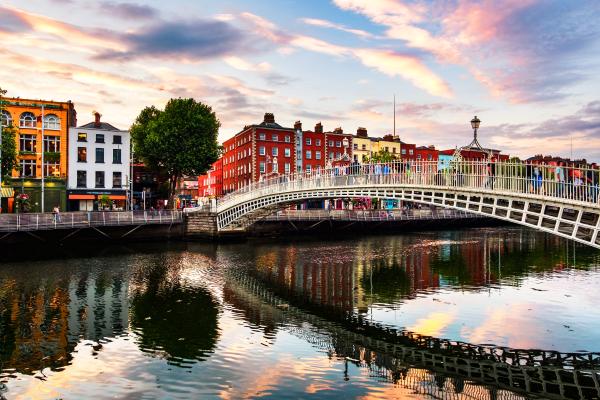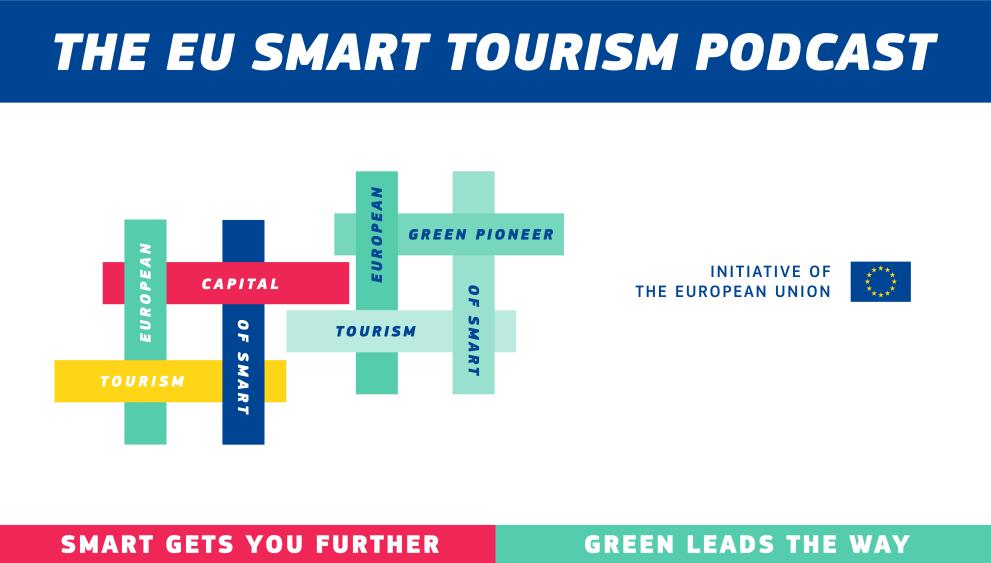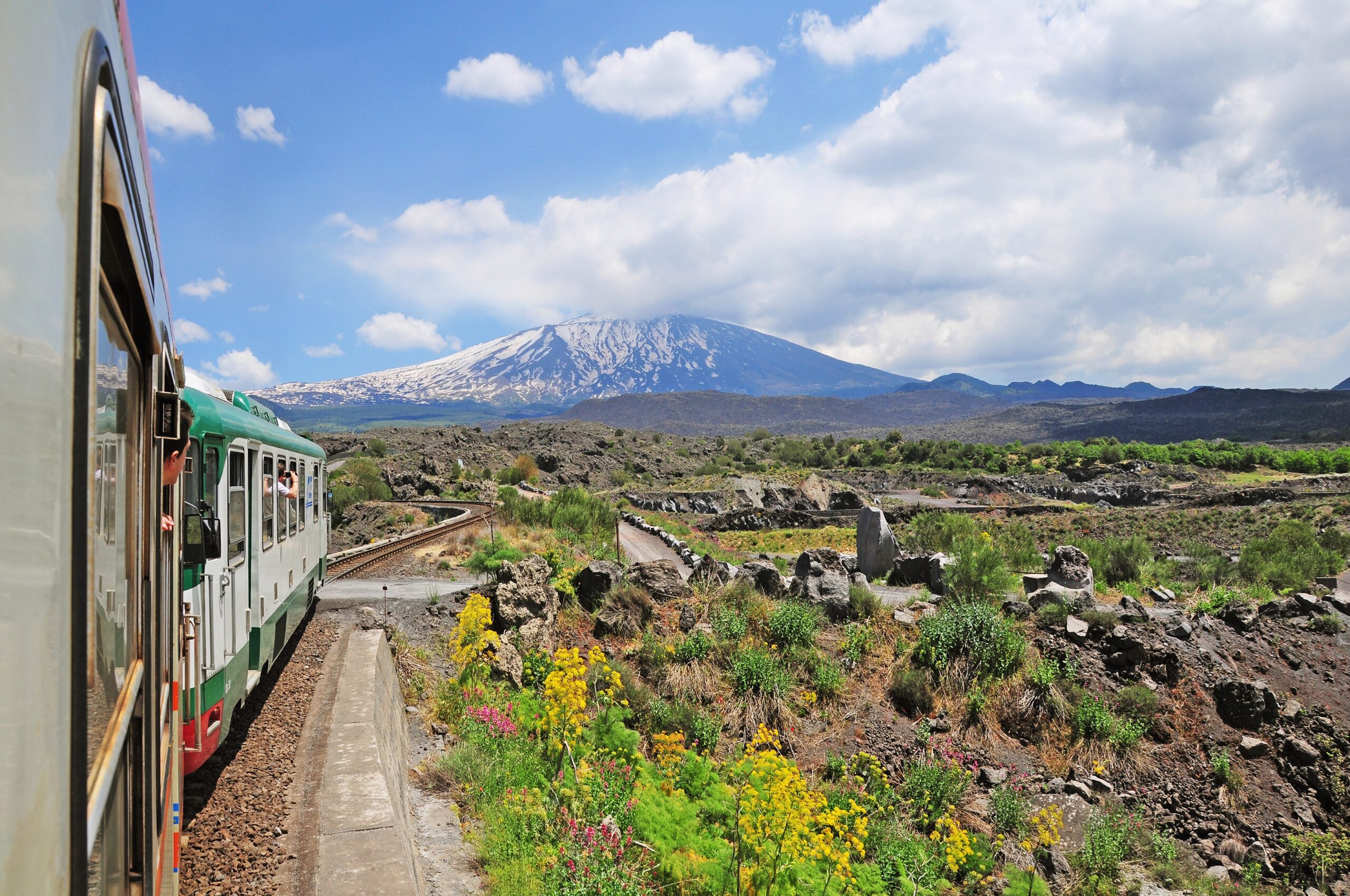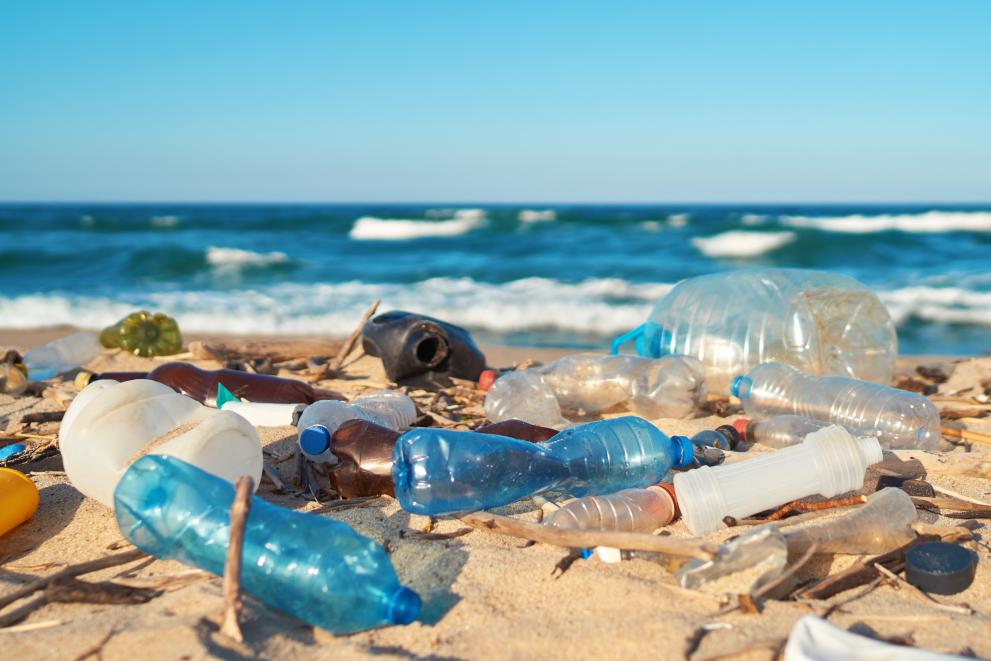Legal basis
Article 6(d) and Title XXII, Article 195 of the Treaty on the Functioning of the European Union (TFEU).
The EU’s tourism industry in the strict sense of the term (traditional providers of holidays and tourism services) is made up of 2.3 million businesses, primarily small and medium-sized enterprises (SMEs), employing an estimated 12.3 million people.
Tourism is a major economic activity in the European Union, accounting for 10% of its GDP, with wide-ranging impact on economic growth, employment and social development. It can be a powerful tool in fighting economic decline and unemployment.
EU policy aims to maintain Europe’s standing as a leading destination, while maximising the industry’s contribution to growth and employment and promoting cooperation between EU countries, particularly through the exchange of good practices.
A. General policy
Since 2001, the Commission has published several communications, the most recent one in 2014, setting out its policy guidelines for the development of the tourism sector. These are:
- ( COM(2007)0621 ) of 19 October 2007 – Agenda for a sustainable and competitive European tourism – which sets out how sustainable development could ensure the long-term competitiveness of tourism and announced a three-yearly set of preparatory activities;
- ( COM(2010)0352 ) of 30 June 2010 – Europe, the world’s No 1 tourist destination – a new political framework for tourism in Europe – which analyses the factors that make the European tourism industry competitive and the obstacles to its sustainable development;
- ( COM(2012)0649 ) of 7 November 2012 – Implementation and development of the common visa policy to spur growth in the EU – which seeks to bring about an increase in the number of tourists from non-EU countries visiting the EU by establishing a common visa policy;
- (COM(2014)0086) of 20 February 2014 – A European Strategy for More Growth and Jobs in Coastal and Maritime Tourism – which seeks to promote sustainable growth and competitiveness in coastal and maritime tourism.
B. Special measures
1. Measures benefiting tourists (travellers and/or holidaymakers)
These measures include steps to make border crossing easier and protect both the health and safety and the material interests of tourists. They include Council Recommendation 86/666/EEC on fire safety in hotels, Directive 2008/122/EC on timeshare properties and Directive (EU) 2015/2302 on package travel and linked travel arrangements. In addition, regulations have been adopted on passenger rights in all areas of transport ( 2.2.3 ). Directive 2006/7/EC of 15 February 2006 on the management of bathing water quality exemplifies the connection between tourism and other areas of EU competence. It also repeals Directive 76/160/EEC of 8 December 1975 with effect from 31 December 2014.
At Parliament’s request, the Commission has launched initiatives in the form of five preparatory programmes on targeted topical issues for European tourism.
The ‘ EDEN ’ initiative focuses on promoting European tourist ‘destinations of excellence’, in other words little-known or emerging destinations that observe sustainability principles.
The ‘ Sustainable Tourism ’ concept includes the ‘European Green Belt’ (6 800 km of paths from the Barents Sea to the Black Sea), the aim of which is to promote the transformation of the former Iron Curtain into a cross-border network of walking and cycling paths. The EU also co-finances cross-border sustainable tourism projects to diversify tourism options in Europe.
The ‘ DiscoverEU ’ programme, among several other programmes on the promotion of tourism, allows 18 year-old Europeans to travel across the EU and learn more about the diversity of Europe.
2. Responsible tourism measures benefiting the tourism industry and regions
The Commission also supports the creation of networks between the main European tourist regions. The EU offers a range of funding sources to help tourism contribute to regional development and employment.
In April 2022, the Commission adopted a proposal for creating an EU-wide system on the protection of geographical indications of non-agricultural products (such as handicrafts) ( COM(2022)0174 ). These products are often significant for local identity and attract tourism. One of the aims of revising the regulation is to boost regional economies and tourism in these areas. It is currently awaiting the Council’s position at first reading .
Harmonised statistics on tourism have been compiled in the EU since 1996. Regulation (EU) No 692/2011 of 6 July 2011 established a common framework for the systematic development, production and dissemination of European statistics on tourism collected in the Member States. In 2013, the Commission created a Virtual Tourism Monitoring Centre to coordinate the collection and storage of data and to guarantee a greater degree of synergy between the levels at which tourism policy decisions are taken. In October 2022, the Commission launched the EU tourism dashboard , a tool to assist regional and national policymakers in directing policies and strategies in the tourist sector by increasing the accessibility of tourism statistics and aiding destinations and public agencies in monitoring their progress in the green and digital transitions. This is one of the proposed measures in the Commission’s ‘ transition pathway for tourism strategy ’ of 2022 (more details on the strategy below).
In November 2022, the Commission adopted a revision of Regulation (EU) 2018/1724 on data collection and sharing related to short-term accommodation rental services ( COM(2022)0571 ). With a focus on SMEs in particular, this initiative seeks to develop responsible, transparent and fair growth in short-term rentals as part of a well-balanced tourist ecosystem.
3. Other focused measures
The Commission also organised a Showcase Conference on Tourism that took place in Brussels on 19 March 2019.
In 2023, the Commission is planning to adopt a regulation on digitalising travel documents. This would make travelling easier, as digital travel documents are simpler to issue, which would benefit the tourism industry.

Role of the European Parliament
Well before the entry into force of the Treaty of Lisbon, Parliament had adopted a series of resolutions on the Commission guidelines and initiatives concerning tourism.
After the Treaty of Lisbon entered into force, on 27 September 2011 Parliament adopted a resolution based on an own-initiative report entitled ‘Europe, the world’s No 1 tourist destination’. On 25 March 2021, it adopted an own-initiative resolution on establishing an EU strategy for sustainable tourism. The resolution called to rebuild the EU tourism sector after COVID-19, to refocus governance policy within the EU framework, to strengthen the transition to sustainable, responsible and smart tourism and to rethink the planning of future tourism.
On 27 October 2015, Parliament adopted a position at second reading with a view to the adoption of a new directive which seeks to enhance the protection of travellers undertaking package tours and which repeals Directive 90/314/EEC. The co-legislators are getting ready to amend the Package Travel Directive again. The work should start at the end of 2023. On 29 October 2015, Parliament adopted a resolution on new challenges and concepts for the promotion of tourism in Europe . It concerns the digitisation of distribution channels, the development of the new sharing economy sector, changing consumer behaviour, the need to attract and retain skilled staff, demographic change and seasonality. In it, Parliament calls on the Commission to present a new tourism strategy to replace or update the communication of 30 June 2010 entitled ‘Europe, the world’s No 1 tourist destination’.
On 24 October 2019, Parliament adopted a resolution on the negative impact of the bankruptcy of Thomas Cook on EU tourism. Parliament also endorsed a resolution , on 5 May 2022, on the impact of the Russian illegal war of aggression against Ukraine on the EU transport and tourism sectors. Parliament also adopted other relevant resolutions including on the implementation of the updated new industrial strategy for Europe: aligning spending to policy , on 15 September 2022, and on the assessment of the new Commission communication on outermost regions on 13 June 2023.
Members contributed to drafting and negotiating the EU legislation affecting tourism, such as the proposal for a regulation on data collection and sharing relating to short-term accommodation rental services ( COM(2022)0571 ). When adopted, it will regulate the data collection activities of the short-term rental platforms, provide more security for tourists, ensure a level playing field for the tourism industry, as well as allowing cities affected by tourism to work towards sustainability and to ensure a good quality of life for their residents.
Parliament’s Committee on Transport and Tourism and its Tourism Task Force (TTF) hold regular discussions with representatives of international tourism bodies and stakeholders. The TTF has also called for a more consistent tourism policy and raised the issue of a separate EU budget line for tourism.
Measures in the context of the COVID-19 outbreak
Europe is the world’s leading tourist destination. The tourism industry is a vital part of the EU’s economy, which is why the EU is committed to reviving this sector.
During the first four months of 2020, Europe saw a dramatic 44% decline in international tourist arrivals compared to the same period in 2019 – a decrease in line with global performance. Tourism job losses in Europe in 2020 were monumental, ranging from 14.2 million to 29.5 million.
The Commission deployed different rapid response tools: a proposal to suspend the rules obliging airlines to use their allocated slots at EU airports ( COM(2020)0111 ); guidelines on EU passenger rights ( C(2020)1830 ) and border checks ( C(2020)1753 ); and assistance in the repatriation of EU travellers during the lockdown lasting from March to May 2020.
In May 2020, the Commission put forward its communication entitled ‘Tourism and transport in 2020 and beyond’ ( COM(2020)0550 ), bringing together guidance and recommendations to safely restore unrestricted free movement and reopen internal borders; safely restore transport, connectivity and tourism services, in particular hospitality, address the liquidity crunch and rebuild consumer confidence, and issued recommendations on vouchers. Parliament, in turn, debated the COVID-19 outbreak during its plenary sessions of 10 March, 26 March and 17 June 2020. During its extraordinary plenary session of 26 March 2020, Parliament adopted its position on three legislative proposals: launching the Coronavirus Response Investment Initiative ; extending the EU Solidarity Fund to cover public health emergencies ; and temporarily suspending airport slot rules (please also see COM(2020)0111 above). Moreover, at its plenary session of 19 June 2020, Parliament adopted a resolution on tourism and transport in 2020 and beyond , calling for rapid, short-term and long-term support for the transport and tourism sectors to ensure their survival and competitiveness.
In July 2020, the Commission adopted an ‘ Action plan for fair and simple taxation supporting the recovery strategy ’ (COM(2020)0312). In this plan, the Commission outlined its goal to revise the VAT Directive, in particular the VAT special scheme for travel agents. In the fourth quarter of 2023, the Commission is planning on adopting this revision. The aim of the initiative is to revise the special VAT scheme for travel agents, VAT rules on passenger transport and the VAT exemption regime for non-EU travellers.
In March 2021, Parliament adopted a resolution entitled ‘ Establishing an EU strategy for sustainable tourism ’, in which it called on the Member States to fully implement common and coordinated criteria for safe travel without delay. This included a common vaccination certificate and a system of mutual recognition of vaccination procedures for medical purposes, while facilitating the deployment of the EU Passenger Locator Form, digitally where possible, with full respect for data protection rules.
On 15 February 2022, Parliament adopted a resolution on the challenges for urban areas in the post-COVID-19 era, where it recalled that urban tourism played an essential part in the devising of urban policies and pointed out that most EU cities suffered from downturns in tourism following the pandemic and had to search for new and more sustainable modi operandi to restore tourism. This led to the increased use of new digital technologies, which enabled the better management of urban spaces and the movement of urban tourists to prevent the build-up of large groups and risky situations in the context of the pandemic.
Member States were called on to establish a common and non-discriminatory EU Health Safety Protocol for testing before departure, which should be reliable and affordable, and include rapid testing technologies, PCR tests and others.
On 17 March 2021, the Commission put forward a communication entitled ‘A common path to safe and sustained re-opening’ ( COM(2021)0129 ), as well as a proposal for a regulation on a framework for the issuance, verification and acceptance of interoperable certificates on vaccination, testing and recovery to facilitate free movement during the COVID-19 pandemic (Digital Green Certificate) ( COM(2021)0130 ), and a similar framework applying to third-country nationals staying or residing legally in the territories of the Member States ( COM(2021)0140 ).
The EU Digital COVID Certificate was accepted in all Member States, helping to ensure the right to freedom of movement for all EU residents. Following a revision of the regulation and its adoption by Parliament and the Council ( Regulation (EU) 2022/1034 ), the Digital COVID Certificate Scheme was extended until June 2023.
In February 2022, the Commission adopted its plan entitled ‘ Transition Pathway for Tourism ’. The updated EU industrial strategy stressed the need to strengthen the tourism sector’s resilience and accelerate the digital and green transitions in the light of the COVID-19 pandemic. The transition pathway identified 27 areas of measures for the green and digital transitions, and to make the EU’s tourism industry more resilient. In response to this plan, the Council adopted the ‘ EU agenda for tourism 2030 ’ in December 2022. The agenda focused on five priorities: the green and digital transitions; resilience and inclusion; skills and support; and the governance and policy-enabling framework, with several actions included under each priority.
Davide Pernice
Guide on EU funding for tourism
This online guide highlights the wide range of funding programmes financed by the new budget, multiannual financial framework 2021-2027, and Next Generation EU.
An EU initiative to reward innovative and smart tourism in European Cities!

An initiative to reward smart and sustainable tourism practices in European cities
Smart Tourism initiative
Under the umbrella of Smart Tourism, the European Commission has launched two competitions to promote smart and sustainable tourism in the EU, network and strengthen destinations, and facilitate the exchange of best practices.
The European Capital of Smart Tourism recognises outstanding achievements by European cities as tourism destinations in four categories: sustainability, accessibility, digitalisation as well as cultural heritage and creativity.
The European Green Pioneer of Smart Tourism, successor of the European Destinations of Excellence (EDEN) competition, rewards smaller destinations that have implemented successful strategies to boost sustainable tourism through green transition practices.
Smart Tourism is an EU initiative, currently financed under the Single Market Programme (SMP) - former COSME Programme. It is built on the successful experience of the Preparatory Action proposed by the European Parliament and implemented by the European Commission.
Promote the rich tourism offer of European countries and increase citizens’ sentiment of sharing local tourism-related values.
Strengthen tourism-generated and innovative tourism development in the cities, their surroundings and their neighbour regions.
Increase the attractiveness of European cities that are awarded the title and strengthen economic growth and job creation.
Establish framework for the exchange of best practices between the cities and create opportunities for cooperation and new partnerships.
Inform the travellers of the sustainable and outstanding tourism practices in destinations they are visiting.
Encourage sustainable socio-economic development in tourism destinations across Europe.
Watch here the European Capital of Smart Tourism video
Watch here the Green Pioneer of Smart Tourism video
2024 European Capital of Smart Tourism and European Green Pioneer of Smart Tourism
Dublin (ireland) is the 2024 european capital of smart tourism and grosseto (italy) is the 2024 european green pioneer of smart tourism.

Promoting innovation in European smart destinations
The European Capital of Smart Tourism and the European Green Pioneer of Smart Tourism reward bigger and smaller European cities for outstanding, innovative and sustainable tourism practices.
Our aim is to promote innovation to strengthen smart and sustainable destinations in Europe, to enhance tourism offers for visitors and to facilitate new partnerships, networking and the exchange of best practice. We also aim to foster the EU’s forward-thinking tourism offer to global audiences and sustainably increase footfall at pioneering destinations that offer unique visitor experiences.
The initiative is managed by the European Commission Directorate General for Internal Market, Industry, Entrepreneurship and SMEs. It is supported by the Single Market Programme and results from a preparatory action proposed by the European Parliament.
This initiative complements other EU actions and policy initiatives in the tourism field .
EU Smart Tourism Podcast

We take our first steps into the world of smart tourism practices in Europe, the innovations behind the future of tourism and the driving competition that cities across
Get the latest smart tourism news from the initiative right in your inbox
Follow us on social media
- European Smart Tourism Capitals
- Other social networks
Share this page
ADVENTURE BY RAIL IN EUROPE
Sustainable travel in europe, europe invites the curious.
We use cookies and Inspectlet. By using this website, you accept the use of cookies which helps us provide you more interesting and adapted content.
The Official Travel Portal of Europe
Experience europe through our stories, discover europe by your interests, arts & culture, discover europe.
- Netherlands
- Switzerland
- United Kingdom
Adriatic Coast
Atlantic coast, balkan peninsula, baltic states, carpathians, central europe, iberian peninsula, islands & archipelagos, mediterranean.
- Outermost Regions
Rhine Valley
- Czech-Republic


Adventure by rail in Europe

Solo Female Travel in Europe

Extraordinary train journeys

Green Spain by tourist train

Poland by train

Serbia’s movie-set landscape

Trails and rails in Luxembourg

European Tourism 2021 – Trends & Prospects (Q2/2021)
Publication date: Jul 2021
Language: English

TOURISM REBOUND FEELS WITHIN SIGHT AHEAD OF THE SUMMER SEASON
European travel demand remained weak in early 2021 as international tourist arrivals dropped 83% in the first quarter of the year compared to the same period in 2020 [1] . The gradual easing of restrictions, the ramp-up in vaccinations in Europe, and the reopening of the EU to fully vaccinated travellers from third countries provide some momentum ahead of the peak summer months. Down-side risks remain following the surge in infections of the new and more transmissible Covid-19 Deltavariant, which could force the return of travel restrictions.
Mass vaccinations have been essential to kickstart travel sentiment with 54% of surveyed Europeans intending to book a trip once they have been vaccinated against Covid-19 [2] . This sentiment is in line with a recent EU survey which shows that 75% of respondents believe that Covid-19 vaccines are the only way to end the pandemic, and 49% agree that getting a vaccine is very important to allow them to resume travel [3] . However, uneven vaccination rates, will lead to an uneven recovery across Europe.
[1] UN World Tourism Organisation (UNWTO)
[2] “Monitoring Sentiment for Domestic and Intra-European Travel – Wave 7”
[3] Flash Eurobarometer 494 – Attitudes on vaccination against Covid-19
EU calls for global ban on certain plastic products to combat pollution
World leaders and negotiators meet in Ottawa from 21-29 April for the fourth round of negotiations to prepare a new UN Treaty on global plastic pollution.

With the global community being far from achieving its objective of ending plastic pollution unless more stringent and co-ordinated policies are implemented, the EU is calling for an agreement on rules that tackle plastic pollution at its source.
In particular, the EU calls for a comprehensive lifecycle approach to plastics with bans on certain products and enhanced product design. The new instrument should include legally binding obligations across the entire lifecycle of plastics, from plastic polymer production to waste management and final disposal, to prevent plastic pollution in marine environments as well as others..
More than 4,000 participants from governments, NGOs, industry, and civil society are expected in Canada to find a way to conclude negotiations of a new legally binding instrument to end plastic pollution by the end of 2024.
Executive Vice-President for the European Green Deal, Maroš Šefčovič, who is representing the Commission in Ottawa, said:
“Plastics are important in our economy and daily lives, but the serious negative effects on the environment and human health caused by plastic pollution must come to an end. The new global treaty must transform the way plastic products are designed, produced, used, and recycled. I call on all to join forces in the fight against pollution, which will also address the climate and biodiversity crises the world is currently facing.”
Cutting plastic pollution at the product design phase
Substances and design features that are introduced at the production or manufacturing stage of the plastic life cycle, have a significant impact on plastic pollution. Essential elements of the future treaty would be obligatory elimination and restrictions on plastic products that are avoidable, or problematic as they are particularly prone to be littered or pose a significant risk to human health and the environment. Intentionally added microplastics in products should also be banned.
During the meeting in the Canadian capital, negotiators will work on a revised draft of the treaty, in view of the final session later this year. Members of the negotiating committee will need to find agreement and alignment to secure the successful finalisation of the treaty text, as mandated by the United Nations Environment Assembly.
To mobilise support, the EU is actively involved in the High Ambition Coalition to End Plastic Pollution , which includes 65 countries committed to aim high in the negotiations to end plastic pollution by 2040. On April 15, the coalition released its Ministerial Statement prepared for the meeting in Ottawa, calling for several legally binding core obligations in the new treaty, including on products.
Next steps
The negotiations during this fourth session of the Intergovernmental Negotiating Committee (INC) will continue until 29 April. The final text of the Treaty on global plastics pollution is expected to be concluded during the fifth session of the INC in November-December this year. The EU will continue to work with its allies and other partners aiming at a rapid conclusion of the negotiations.
Background
Plastics are important materials for our economy and daily lives. However, the exponential growth of production and consumption of plastics in recent decades is having serious negative effects on the environment and human health.
According to UNEP data from 2021 , global plastic production amounts to some 400 million tonnes (Mt) per year. Yet only an estimated 12% of the plastics produced have been incinerated and only 9% recycled. The remainder has either been disposed of in landfills or released into the environment, including the oceans. In its Global Plastics Outlook from 2022 , the OECD suggests that plastic leakage to the environment is projected to double to 44 Mt a year, exacerbating environmental and health impacts. Meanwhile, the stocks of accumulated plastics in rivers and oceans is projected to more than triple, from 140 Mt in 2019 to 493 Mt in 2060. Greenhouse gas emissions from plastics production and use are also projected to more than double, to 4.3 Gt CO2e.
The adoption of a legally binding instrument to end plastic pollution is a key priority of the EU’s Circular Economy Action Plan under the European Green Deal . The global community achieved a big milestone during the fifth session of the United Nations Environment Assembly in March 2022, when countries agreed to start negotiations for the new instrument.
The High Ambition Coalition, co-chaired by Norway and Rwanda, brings together like-minded countries, advocating ambitious goals for the new legally binding instrument to tackle the growing amount of plastic waste choking our planet.
For More Information
High Ambition Coalition to End Plastic Pollution
High Ambition Coalition Joint Ministerial Statement INC-2
The EU’s work on Plastic pollution
Plastic pollution UNEA resolution
EU helps launch negotiations on landmark global agreement on plastic pollution – press release (02 March 2022)

IMAGES
COMMENTS
The European Travel Commission (ETC) is the non-profit organisation responsible for the promotion of Europe as a tourist destination in third markets. Our 36 member National Tourism Organisations work together to build the value of tourism for all the beautiful and diverse countries of Europe through cooperation in sharing best practices ...
The European Travel Commission ( ETC) is an association of national tourism organizations (NTOs) based in Brussels. It was created in 1948 to promote Europe as a tourist destination to long-haul markets outside of Europe, initially the US and later Canada, Latin America and Asia-Pacific. ETC currently has 35 member NTOs and 12 associate members ...
European Tourism 2023 - Trends & Prospects (Q2/2023) BUOYANT TRAVEL ENTHUSIASM WILL DRIVE EUROPEAN TOURISM RECOVERY THIS SUMMER, DESPITE ECONOMIC WOES SLOWING 2023 GROWTH PROSPECTS In the first quarter of 2023, Europe has recovered to about 95% of…. Read more.
About us. The European Travel Commission (ETC) provides travelers with everything they need to create trips that are remembered forever. Europe's allure is endless. Our insatiable passion for the continent and its timeless, various cultures helps us inspire our visitors' boundless desire to discover a Europe without borders.
Via the Tourism Advisory Committee (TAC), the Commission facilitates exchanges of EU country representatives on tourism and, in particular, on the provision of services for tourists. At the EU level, there is close contact with other EU bodies such as the Council of the EU, the European Parliament, the Economic and Social Committee and the Committee of Regions.
The Commission welcomes the adoption of the European Tourism Agenda 2030 by the Council of the European Union. The Agenda is based on the Commission's Transition Pathway for Tourism and includes a programme with actions to be taken by the EU countries, the Commission, as well as the tourism ecosystem.
EUROPEAN TOURISM: TRENDS & PROSPECTS (Q4/2023) 4 FOREWORD As 2023 drew to a close, European tourism continued its path to recovery. Foreign tourist arrivals to Europe now sit at just under 2% below 2019 levels in 2023, and the recovery has extended its reach to a more diverse range of countries within Europe. Southern European
The EU tourism dashboard is an online knowledge tool aimed at monitoring the green and digital transitions of the tourism ecosystem to make tourism more resilient and sustainable. The dashboard visualises tourism-relevant data and indicators collected from available, trusted sources covering the tourism ecosystem. It offers snapshot views of ...
At Parliament's request, the Commission has launched initiatives in the form of five preparatory programmes on targeted topical issues for European tourism. The 'EDEN' initiative focuses on promoting European tourist 'destinations of excellence', in other words little-known or emerging destinations that observe sustainability principles.
Guide on EU funding for tourism. This online guide highlights the wide range of funding programmes financed by the new budget, multiannual financial framework 2021-2027, and Next Generation EU. With these resources and this guide, we're supporting the move towards a more digital, sustainable and inclusive EU.
The Council conclusions on 'Tourism in Europe for the next decade: sustainable, resilient, digital, global and social', adopted by the Competitiveness Council on 27 May 2021, called on the member states and the Commission, in cooperation with stakeholders, to design a European Agenda for Tourism 2030/2050. These conclusions come in response to ...
Greening European tourism is part of the broader objective to develop a more sustainable and responsible ecosystem, a process involving all players at multi-level governance: industry, destinations, national, regional and local authorities, but also the consumer - the tourist. According to the UN World Travel Organisation, sustainable tourism ...
The European Travel Commission (ETC) represents the national tourism organisations of Europe. Established in 1948, ETC's mission is to strengthen the sustainable development of Europe as a ...
EUROPEAN TOURISM: TRENDS & PROSPECTS (Q4/2021) 4 FOREWORD 2021 was expected to be the year of tourism recovery, before the arrival of the Delta and the Omicron variants over the summer and winter seasons respectively. As we enter the third year of the pan-demic, uncertainty remains high due to its unpredictable nature and evolution.
Sustainable tourism involves the preservation and enhancement of cultural and natural heritage, ranging from the arts to local gastronomy or the preservation of biodiversity. In 2006, the European Commission adopted a Communication titled 'A renewed EU tourism policy: towards a stronger partnership for European tourism' (COM(2006) 134 final ...
Smart Tourism initiative. Under the umbrella of Smart Tourism, the European Commission has launched two competitions to promote smart and sustainable tourism in the EU, network and strengthen destinations, and facilitate the exchange of best practices. The European Capital of Smart Tourism recognises outstanding achievements by European cities ...
This section provides information on the 2 main components of tourism statistics: data on tourist accommodation, namely capacity and occupancy of tourist accommodation establishments (for example number of bed places, number of nights spent). Eurostat also publishes a separate series on short-stay accommodation offered via online collaborative ...
Switzerland. Türkiye. Ukraine. United Kingdom. Outermost Regions. Get inspired for your next trip to Europe. Plan your vacation to discover European culture, heritage, architecture, gastronomy and stunning landscapes.
The European Network for Rural Development: projects and practice. Search tourism projects supported by the European Network for Rural development (ENRD), about the ENRD, getting involved, news, publications and events. Coastal and maritime tourism. About coastal tourism in the EU, legal and stategy documents, studies, latest news and events.
European travel demand remained weak in early 2021 as international tourist arrivals dropped 83% in the first quarter of the year compared to the same period in 2020 [1]. The gradual easing of restrictions, the ramp-up in vaccinations in Europe, and the reopening of the EU to fully vaccinated travellers from third countries provide some ...
After the co-creation process of the Transition Pathway, we now work on its co-implementation.. In February 2022, following the publication of the Transition Pathway for Tourism, the European Commission launched a call for commitments to stakeholders. Public and private tourism stakeholders are invited to share their concrete actions and targets to contribute to the green and digital ...
On 5 June 2023, the revisions of the EU emissions trading system ('ETS') Directive by Directive (EU) 2023/958, Directive (EU) 2023/959 and the Regulation on Monitoring, Reporting and Verification ('MRV') for maritime transport emissions by Regulation (EU) 2023/957 entered into force.
The adoption of a legally binding instrument to end plastic pollution is a key priority of the EU's Circular Economy Action Plan under the European Green Deal. The global community achieved a big milestone during the fifth session of the United Nations Environment Assembly in March 2022, when countries agreed to start negotiations for the new ...
The European Commission is running a campaign to promote opportunities for students, job seekers and employers in tourism. Overview of EU tourism policy EU policy aims to maintain Europe's standing as a leading destination while maximising the industry's contribution to growth and employment and promoting cooperation between EU countries ...
8. In view of the eighth Brussels Conference on Syria, the European Council invites the High Representative and the Commission to review and enhance the effectiveness of EU assistance to Syrian refugees and displaced persons in Syria and in the region. It calls on all donors to maintain or increase their level of assistance to them. III ...